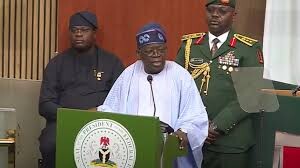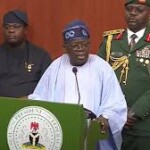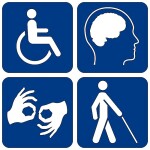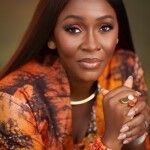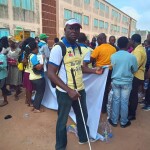June 12, 2025, President Bola Ahmed Tinubu delivered his Democracy Day address not from the traditional seat of executive power—Aso Rock—but from the chambers of the National Assembly. The symbolism was not lost. This gesture appeared to honour the legislature as a cornerstone of democracy and perhaps to reflect the will of the people more directly. Yet, while the legislature shares the chamber with the executive in their choreography of symbolism, the lamentation of over 35 million Nigerians with disabilities is conveniently ignored.
Twenty-six years on, perhaps it is time to pose the poignant question to both the executive and legislature: How inclusive is Nigeria’s democracy when a vast segment of its population—persons with disabilities (PWDs)—remains locked out of the very systems that claim to empower them?
Across the country, Nigerians with disabilities are still denied full participation in the democratic process. Most polling stations are physically inaccessible, ballot papers lack braille or tactile guides, sign language interpreters are absent during political debates, and voter education campaigns rarely consider alternative formats for blind, deaf, or neurodivergent citizens. Even political party constitutions and manifestos largely fail to mainstream disability inclusion.
Political participation in Nigeria still requires substantial financial resources, from purchasing nomination forms to funding campaigns. For PWDs, who are statistically among the poorest in the country, these costs are prohibitive, and beyond reach. These participation restrictions are further aggravated by deep-seated societal biases and misconceptions about disability. This stigma often translates into discriminatory practices within political parties and governance structures.
Even more ridiculous are the policy and legislative lacuna incentivising discrimination and exclusion of Nigerians with disabilities in the political landscape. While the 2022 Electoral Act introduced provisions to enhance PWD participation, including the use of assistive technologies and disaggregated data collection, implementation remains inconsistent. For instance, a study by SBM Intelligence revealed that only 22.3% of PWD respondents reported the availability of assistive aids at their voting centers during the 2023 elections.
It is an irony—perhaps even a tragedy—that on the day we commemorate a popular mandate denied by autocracy, we still deny millions of citizens the tools and spaces to exercise their democratic rights. True democracy isn’t just about voting; it is about access, agency, and voice. But persons with disabilities are scarcely represented in political office. There is no constitutional guarantee of reserved seats for them in national or sub-national legislatures, unlike gender quotas in some countries. And the Nigeria Disability Act of 2018, while a step in the right direction, remains poorly implemented with little institutional accountability.
More disturbing is the hypocrisy embedded in governance structures. The same government that commemorates June 12 with elaborate speeches in hallowed chambers continues to underfund agencies like the National Commission for Persons with Disabilities and fails to enforce accessibility standards in public buildings, transport systems, and digital services. The result is that many PWDs remain excluded not only from politics but also from education, employment, healthcare, and justice—pillars of any true democracy.
As the president addressed the nation today, one could not help but wonder: Were his words translated into Nigerian Sign Language? Were they accessible to the blind or the cognitively disabled? Were the experiences of the most marginalized citizens—many of whom cannot even access identity cards to register to vote—reflected in the speech?
If democracy in Nigeria is to mean anything beyond rituals of elections and official pageantry, it must centre inclusion—not as charity, but as justice. The voices of Nigerians with disabilities are not dispensable; they are fundamental. Their exclusion is not an unfortunate oversight—it is a systemic failure.
Thirty-one years after ‘June 12’, and over two decades into the Fourth Republic, the question remains: Whose democracy are we celebrating?
Until we dismantle the barriers that exclude over 35 million Nigerians with disabilities from political participation and democratic processes, Democracy Day will remain, for many, just another public holiday—symbolic, performative, and hollow.

